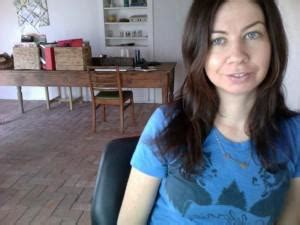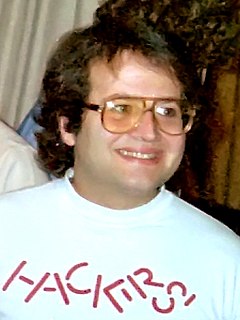A Quote by Lev Grossman
The new Web is a very different thing. It's a tool for bringing together the small contributions of millions of people and making them matter. Silicon Valley consultants call it Web 2.0, as if it were a new version of some old software. But it's really a revolution.
Related Quotes
In the ideology of the new Silicon Valley, work was for the owned. Play was for the owners. There was a fundamental capitalism at work: While they abhorred the idea of being a wage slave, the young men of Silicon Valley were not trying to tear down the capitalist system. They were trying to become its new masters.
My venture investing career has three phases, all roughly 6-8 years long. The first, at Euclid, was software to Internet. The second, at Flatiron, was Internet to bubble. And the third, at USV, has been web 2 to mobile. I have always used a new firm to denote a new investment phase for me. Throw away the old. Start with the new.
More and more major industries are being run on software and delivered as online services—from movies to agriculture to national defense. Many of the winners are Silicon Valley-style entrepreneurial technology companies that are invading and overturning established industry structures. Over the next 10 years, I expect many more industries to be disrupted by software, with new world-beating Silicon Valley companies doing the disruption in more cases than not.
There is more interest in what is occurring in technology companies that impact news. Such companies don't have the same sense of transparency about what they do. They have a tradition of secrecy about products, mores and decision-making that goes along with Silicon Valley and intellectual property and technology. You cannot step onto the grounds of Google without signing a Non-Disclosure Agreement. That industrial secrecy mentality exists along with a theoretical sensibility about transparency on the Web, which is different than transparency inside companies that profit from the Web.
The notion of the Internet as a force of political and social revolution is not a new one. As far back as the early 1990s, in the early days of the World Wide Web, there were technologists and writers arguing forcefully that the Internet was destined to become the most important tool for cultural change in human history.
Do you understand how there could be any writing in a spider's web?" "Oh, no," said Dr. Dorian. "I don't understand it. But for that matter I don't understand how a spider learned to spin a web in the first place. When the words appeared, everyone said they were a miracle. But nobody pointed out that the web itself is a miracle." "What's miraculous about a spider's web?" said Mrs. Arable. "I don't see why you say a web is a miracle-it's just a web." "Ever try to spin one?" asked Dr. Dorian.
We have a choice in Silicon Valley. We can either continue to exist as an island to ourselves, focused on wealth creation and innovation... or we can understand that we are in the middle of a software revolution and answer the nation's call to provide economic opportunity and technology to places left behind.







































